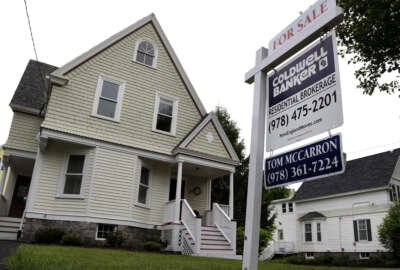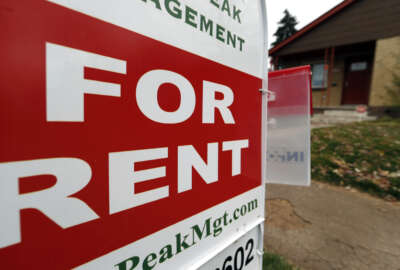
Service members get tiny bump in BAH for 2018
Military households will only see a $10 increase on average in basic allowance for housing pay.
Military households will see the tiniest bump in the funds they get from the government to help pay for housing.
The new 2018 Basic Allowance for Housing (BAH) rates will give service members living off base an average of $10 more per month to cover living expenses.
The increase is small and rate increases or decreases differ by base. About half of the nearly 300 bases will see a decrease in rates.
Areas like Washington, D.C. and California will see mostly increases in BAH rates, while places like Alaska will see a decrease.
No military households will see a decrease in BAH funding unless they move to a new location or are demoted.
The small bump comes about $50 to $100 short of covering the average rent and utilities for military families.
The disparity highlights how military personnel benefits have continued to fall behind economic trends as Congress continues to struggle with budget caps and passing budgets on time.
The Senate tried to change BAH payments in the 2017 defense authorization bill, but ultimately pulled it from the final bill.
The provision would have changed the law so BAH only reimburses service members for their actual expenses instead of paying them a flat monthly payment.
The provision would have made service members provide proof of their rent and utility payments. The military would then only reimburse service members for what they actually spent, instead of giving them a flat fee and allowing them to keep the remainder.
The bill would also make it so that couples and service members who room together would not be able to receive two BAH stipends for one house. Instead, their individual stipends would be cut in half and then changed to cover the actual living cost. The 2018 bill also considered taking away benefits for couples, but ultimately did not.
The Air Force punched back at Congress over the provision.
“From my discussions with airmen around the world, I find that this proposal is having a significant negative impact on airmen’s morale and their sense of support from their elected officials,” a June 14 letter to Senate Armed Services Committee Chairman John McCain (R-Ariz.) signed by Air Force Chief Master Sgt. James Cody said. “Airmen are concerned about the potential financial hardships as some families could lose up to $50,000 a year in compensation. Additionally, this proposal threatens our wingman culture as it provides disincentives for shared living arrangements, thereby removing a critical support structure that contributes to the resiliency of the force.”
Garry Hall, president and CEO of the Association of the United States Navy, said BAH is especially important for sailors because they are often stationed in areas such as San Diego, California, and Norfolk, Virginia, where housing is expensive due to accessibility to the water and local resorts.
Basic pay for an E-4 with four years in the military is about $2,600 a month. The average rent in San Diego County in March 2016 was $1,618, according to a report by Market Pointe Realty Advisors.
“These are high-dollar areas and without [BAH, sailors] couldn’t afford to live in those areas and scrape by,” Hall said.
Read more of the DoD Personnel Notebook
Copyright © 2024 Federal News Network. All rights reserved. This website is not intended for users located within the European Economic Area.
Scott Maucione is a defense reporter for Federal News Network and reports on human capital, workforce and the Defense Department at-large.
Follow @smaucioneWFED





